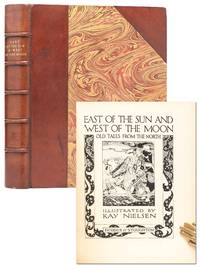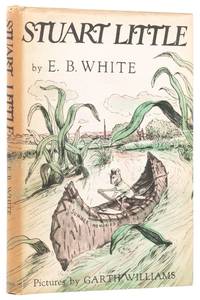1816 · London
by Fenwick, Eliza
London: Longman, Hurst, Rees, Orme and Brown, 1816. Early edition. Very Good. Twelvemo. 144 pp. With six copper-engraved plates (including frontispiece). Contemporary quarter roan over drab boards. Spine titled and ruled in gilt. Edgewear, mostly to corners. Contemporary ink inscription, "Schoolroom Eatington" (?), to front pastedown. Tear to center of one plate with minor loss to part of the image. Fore-edge of lower flyleaf cropped a bit short. Some contemporary ink marginalia. Still a Very Good, internally clean copy. Early edition, first published as a part of Benjamin Tabart's Juvenile and School Library in 1810. All editions are scarce: OCLC records (truncated)













